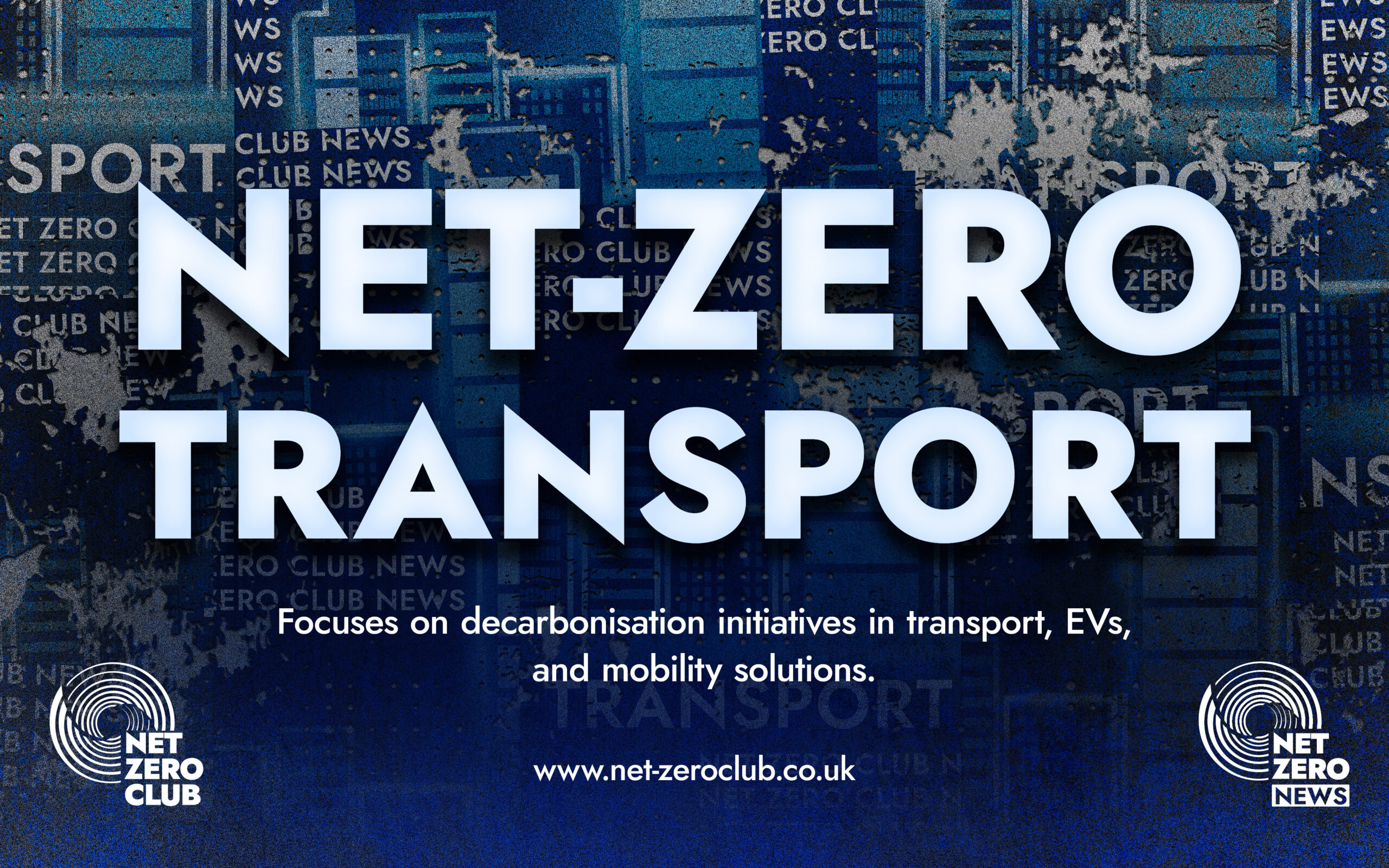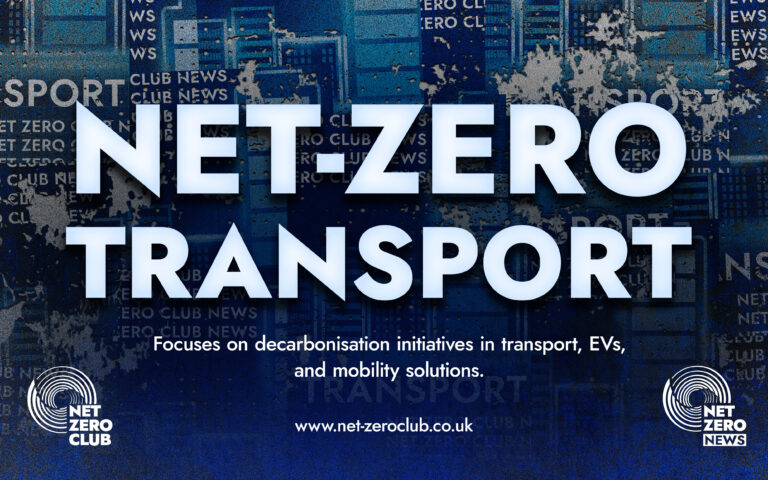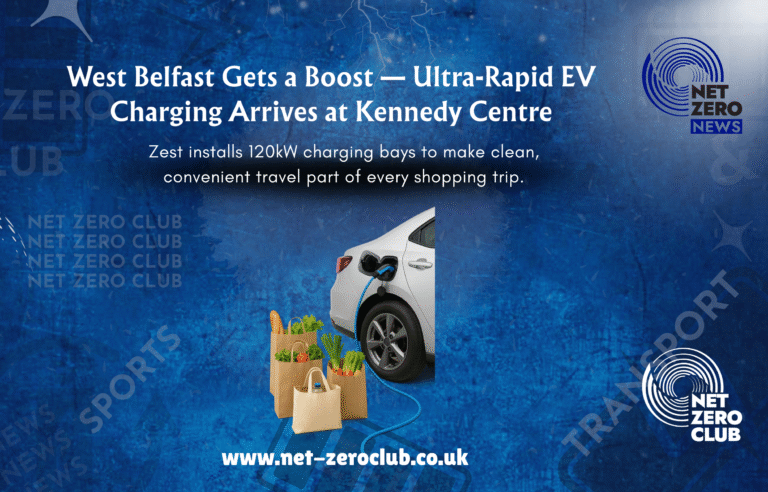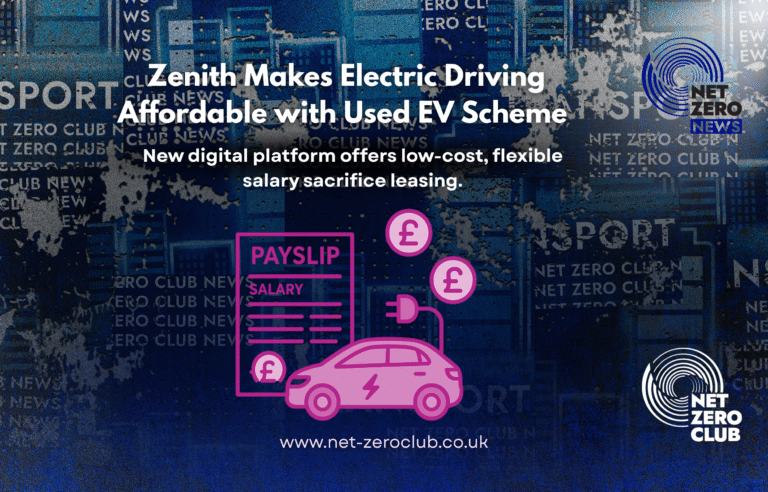Teignbridge Cuts Carbon Emissions with SFS Electric Fleet

Welcome, Net Zero News readers,
In an inspiring move towards a more sustainable future, Teignbridge District Council has recently unveiled a new fleet of fully electric vehicles (EVs), marking a significant milestone in its journey towards achieving net zero emissions. This initiative not only represents a commitment to reducing carbon footprints but also sets a precedent for other councils to follow in the pursuit of environmental responsibility.
The new electric vehicle fleet consists of an impressive array of Ford E-Transit tippers and Vauxhall Vivaro Electric vans, all designed to enhance the council’s operational efficiency while significantly reducing greenhouse gas emissions. With this new fleet, Teignbridge District Council is poised to cut down its carbon emissions by an estimated 58 tonnes annually, a substantial step in their climate action strategy.
This fleet of electric vehicles is part of the council’s comprehensive contract hire agreement with Specialist Fleet Services (SFS), which involves the provision of a total of 56 vehicles. These include not only the newly introduced EVs but also refuse collection vehicles, kerbside recycling vehicles, vans, and a specialised sweeper for street cleansing. This diverse assortment of vehicles allows the council to tackle various environmental challenges across the district while maintaining a commitment to sustainability.
Councillor Peter Williams, who is the executive member for environmental services, expressed his enthusiasm for the new fleet, stating: “Our waste, recycling, parking, and enforcement teams are proud to lead by example by adopting these new vehicles. Together, we can drive towards a greener, more sustainable future for Teignbridge.” His words highlight the collaborative effort required from all sectors of the council to prioritise sustainability and make a tangible difference in the fight against climate change.
Bob Sweetland, managing director at SFS, also commented on this important initiative, noting: “This new fleet is helping Teignbridge District Council to achieve climate action targets and enhance its sustainability. Over the past 20 years, we have worked closely with the council to help improve the efficiency of its fleet operations, and we are pleased to be able to include the latest alternative fuel technology.” Sweetland’s remarks underscore the longstanding partnership between SFS and the council, emphasising the role of collaboration in achieving ambitious sustainability goals.
SFS boasts a rich history of providing fleet and workshop management solutions to local authorities across the UK, with a network of 13 workshops, nine of which are located at council depots. Moreover, SFS operates its own specialist vehicle hire division, CTS Hire, catering to the needs of municipalities requiring short- to medium-term vehicle provisions. This extensive experience equips SFS to support councils like Teignbridge in their sustainability efforts effectively.
The introduction of electric vehicles into the council’s operations is not merely a step towards reducing emissions; it is a transformative shift that offers numerous benefits. Firstly, electric vehicles are known for their lower operating costs. By transitioning to EVs, Teignbridge District Council can save significantly on fuel costs, which can then be reinvested into other vital community services. Furthermore, the maintenance requirements for electric vehicles are typically lower than their petrol or diesel counterparts, which can lead to enhanced efficiency and further savings.
Moreover, the move towards electric vehicles is aligned with the broader national and global agenda to combat climate change. As more councils and organisations recognise the urgent need to reduce their carbon footprints, initiatives like that of Teignbridge District Council set a powerful example. These efforts contribute to a larger narrative of sustainability, encouraging communities to engage in environmentally friendly practices and consider the impacts of their choices on the planet.
As we look towards the future, it is crucial for all sectors—government, private, and public—to collaborate in the transition to a net zero economy. The adoption of electric vehicles is just one piece of a larger puzzle. Councils must also consider integrating renewable energy sources, enhancing public transport systems, and promoting cycling and walking initiatives to create a truly sustainable ecosystem.
Teignbridge District Council’s initiative is also a reminder of the importance of local governments in spearheading climate action. Local councils have the unique ability to implement change at the community level, influencing residents and businesses alike. By leading by example, councils can inspire more sustainable practices among their constituents, fostering a culture of environmental stewardship that extends beyond council operations.
As we reflect on the significance of Teignbridge’s new electric vehicle fleet, it is essential for other councils to take note and consider how they can follow suit. The transition to electric vehicles is not solely about reducing emissions; it is about rethinking how we approach transportation, waste management, and urban planning in the context of climate change. It is about creating a sustainable future that prioritises the health of our planet and the well-being of our communities.
In conclusion, the launch of the new fleet of electric vehicles by Teignbridge District Council is a commendable step towards achieving net zero emissions. It not only signals a commitment to sustainability and climate action but also serves as a catalyst for change within the community and beyond. As we continue to navigate the challenges posed by climate change, such initiatives will be vital in shaping a greener, more sustainable future for all. Let us celebrate this achievement and encourage more councils to embrace similar initiatives, fostering a collective movement towards a sustainable tomorrow.
Thank you for joining us in this important conversation. Together, we can make strides towards a net zero future.

 Got net-zero news, project updates, or product launches to share?
Got net-zero news, project updates, or product launches to share? 

